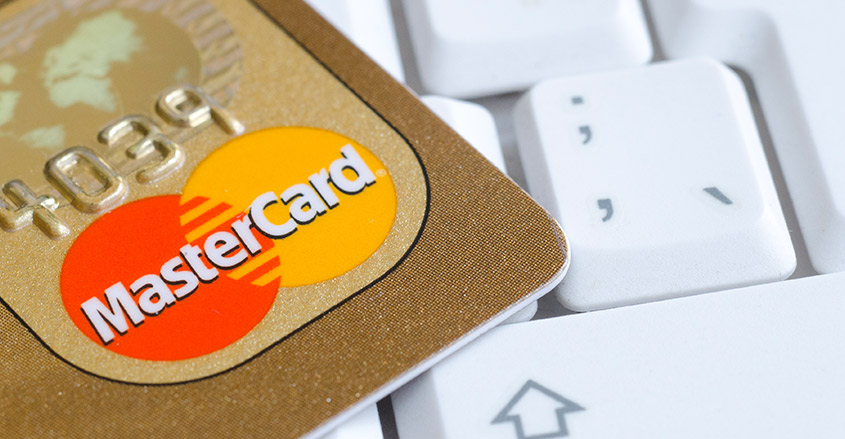Mastercard is looking to fast track blockchain, the technology behind cryptocurrencies such as Bitcoin.
The patents are important because they provide a clue as to how the credit card industry is working furiously behind the scenes to get ahead of the curve on blockchain.
Using the technology may or may not usher in the broad use of cryptocurrency over, say, U.S. dollars.
But it does have the potential to greatly lower the cost of doing business for the finance industry. And that means more profits for the credit card issuers.
A Mastercard patent application disclosed by the U.S. Patent and Trademark Office outlines the means by which a computer node can connect with and authenticate elements of a particular blockchain.
As per Mastercard’s spokesperson, the concept is to increase the speed at which nodes, which store a copy of that network’s contract history, get updated.
Mastercard first made the patent application in October 2016.
And as the application details, “a blockchain may store thousands, millions, or even billions of transaction records over time in a vast number of different blocks.”
Sounds good, but the numbers are, in fact, the problem.
When new blockchain node activation happens, it is mandatory that the next step is to individually verify a massive amount of data in order to activate.
The patent expresses that new nodes must validate “thousands, millions, or even billions of transaction records […] in a vast number of different blocks” that may have amassed over time in a specific blockchain.
The patent thus stipulates a technical solution for more rapid navigation in which “fast track flags” would be included in block headers so that new nodes may scan and validate the blockchain at a quicker speed.
The patent application states “a node in the blockchain network […] may quickly navigate the blockchain by identifying blocks that have activated fast track flags.”
“For verification, the node may identify the earlier fast track block (e.g., based on timestamp) and hash that block […] and then verify that the fast track reference in the more recent fast track block is the same as the hash of the earlier fast track block.”
The patent also presents a framework of the use of software specifically configured to perform querying, hashing, and signatory operations. This would most boost system efficiency.
Blockchain future
MasterCard Labs has reportedly filed for more than 30 “patents related to blockchain tech and cryptocurrency.”
On April 12, USPTO published a MasterCard patent application for tamper proof distributed storage of identity data on a blockchain system that would prevent abuses, such as identity fraud.
In Oct. 2017, the company launched a blockchain system offering business-to-business payments, and submitted a blockchain tech patent for instant payments a month later, in Nov. 2017.
The filing also discusses using a specially configured blockchain. This which would act as the software counterpart to the nodes and help enable further efficiencies.


